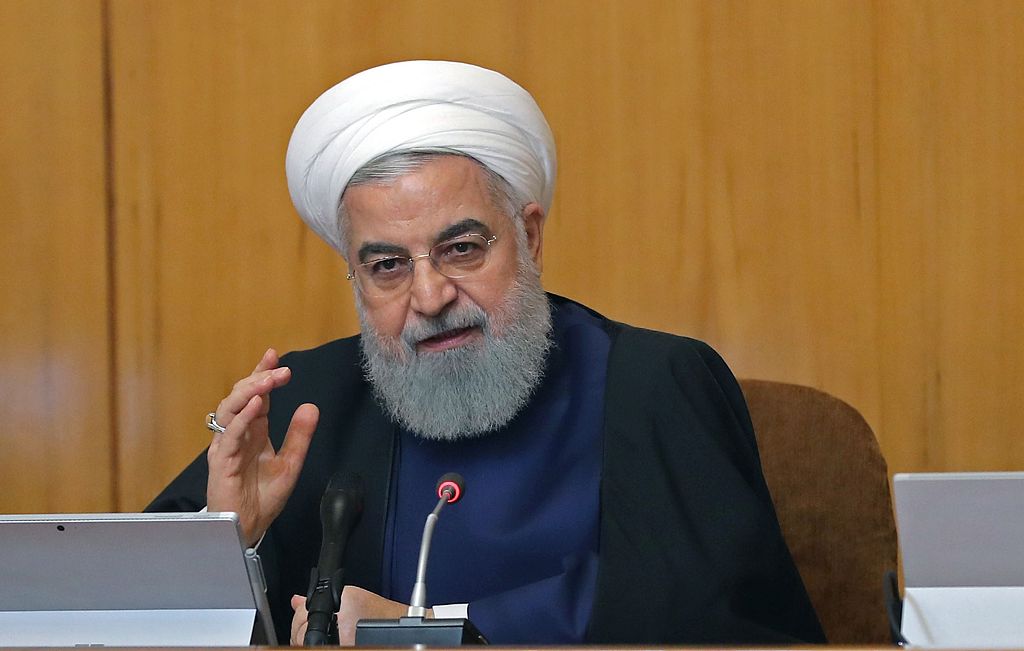Escalation between US and Iran will prove disastrous
- By Sajjad Malik
 0 Comment(s)
0 Comment(s) Print
Print E-mail China.org.cn, May 12, 2019
E-mail China.org.cn, May 12, 2019

Iran's decision to partially withdraw from the nuclear agreement in the middle of an ongoing tension with the United States has added to frayed tempers and increased strategic uncertainty in this volatile region.
President Hassan Rouhani announced on television that Iran would reduce its commitments but was not fully abandoning the nuclear deal. Initially, Iran had planned to hold back the excess enriched uranium and heavy water rather than selling it to other countries, so as to reduce its stockpile as stipulated in the agreement.
This comes as a major shock to the deal, which is already on life support, after the U.S. announced to unilaterally terminate it last year. Donald Trump made this decision on the pretext that it was not a good instrument to check on Iran's long term nuclear ambitions.
Officially known as the Joint Comprehensive Plan of Action (JCPOA) and more generally as the Iran nuclear deal, the agreement was reached in 2015 between Iran and the P5+1, which includes the U.S., China, Russia, France, U.K. plus Germany and the European Union.
The deal was based on the broad consensus that Iran will drastically reduce its nuclear activities under international supervision. In return, it will have economic sanctions lifted and be on its way to becoming a normal member of the international community.
But right from the beginning, this move was opposed by regional U.S. allies like Saudi Arabia and Israel as well as the hawks in U.S. policymaking circles. They saw it as a trap set by Iran to wriggle out of the crippling sanctions and ultimately restart their nuclear activities.
Those opposing it found a good ear in President Trump who showed his opposition to the agreement during and after election. In addition, he also gradually cobbled up a national security team that strongly opposed the deal. Two prominent member of that team are Mike Pompeo and John Bolton.
So after initial hesitance, Trump finally took the decision in May 2018 to back away from the internationally binding agreement. The rest of the signatories, however, remained by it.
Their pledge to honor the agreement came under a lot pressure after the U.S. re-imposed sanctions on Iran. Recently, it also announced its decision to end a six-month waiver on nations importing Iranian oil, which ended earlier this month.
The U.S. has systematically pushed Iran into a cul-de-sac. The biting sanctions are now back and there is hardly any corporation or nation ready to do normal business with Tehran due to fear of U.S. retaliation.
So what should Iran do as the deal without U.S. support is not worth much? All signatories have complied during this one year period since the U.S. pulled out, but Iran has seen little benefit.
President Rouhani, in his address, warned that more drastic measures would follow if the remaining signatories including China, Russia, Germany, Britain and France failed to ease restrictions on its banking and oil sectors in the next 60 days.
Such measures could include the removal of caps on uranium enrichment levels and restarting of work on the Arak nuclear facility. However, a move like that would virtually be tantamount to waving a red cape in front of a raging bull.
Those trying to push Iran to the brink will be more than satisfied that it is taking bait, though at a slower pace. Anti-nuclear deal hawks will trumpet it as justification for the fears that Iran's commitment to dismantling its facilities was simply a smokescreen.
For those nations still backing the deal, the resumption of Iran's nuclear work will make it even harder for them to justify their stance. British Foreign Secretary Jeremy Hunt said at a press briefing along with Mike Pompeo that there would be “consequences” following Iran's decisions.
President Rouhani's move is a sign that his government will not give up fighting till the bitter end. But it also shows that the country must do something to satisfy the people and calm down internal fissures.
The ratcheting up of tension for political mileage is not good. Iran is under stress from rising prices and other factors, and Trump is heading to re-election next year. All these do not augur well for the region.
There is visible tension but we do not yet see any diplomatic push to cool down the situation. The signatories of the nuclear deal excluding the U.S. and Iran should intervene to reduce tension in order to avoid a looming disaster.
Sajjad Malik is a columnist with China.org.cn. For more information please visit:http://m.91dzs.com/opinion/SajjadMalik.htm
Opinion articles reflect the views of their authors, not necessarily those of China.org.cn.
If you would like to contribute, please contact us at opinion@china.org.cn.





